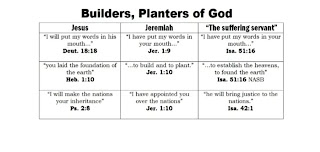Context is King!
It's not about the original Genesis Creation but "the world to come," Heb 2:5;
Cp. Hebrews 9:11 the writer speaks of “the good things to come” as the things “not of this creation.” That is the new, future creation (per Heb. 2:5).
This is verified by Ps 102. “The prayer of an oppressed man,” NET Bible heading, “as he grows faint and pours out his lament before the Lord.” Ending with a Messianic, future hope in Ps 102:13-28.
The speaker “He said” = God the Father!
5 To which angel did He say…quoting what God said in Ps 2:7;
6 And again, when He brought His first-begotten into the world He said…virgin procreation?
7 And of the angels He said….
8 But about the Son [He says, implied]…
10 And [He says, implied]…
13 Now to which of the angels ever did He say…
The pronoun and possessive pronouns (“Your”) refer to the Son:
9 "You love what is right…So God, your God, has anointed you, and set you above your companions."
8 But regarding the Son, “You, O God, you will rule forever on your throne.”
5 "You are my Son…Today I have begotten you."
Psalm 102: Hebrews Vs Greek
The Hebrews writer using the LXX Ps 102 and not the Hebrew (e.g., today someone might quote the NIV instead of the KJV);
The LXX has a different sense entirely in Psalm 102:23-25:
“He [God] answered him [the suppliant]…Tell me [God speaking to the suppliant]…You, lord [God addressing someone else called ‘lord’].”
But the Hebrew text has: “He [God] weakened me…I [the suppliant] say, ‘O my God…’”
The LXX introduces a second lord who is addressed by God:
“At the beginning you founded the earth, and the heavens are the work of your hands” (v. 25).
Again, in the LXX God is answering the one praying and addressing that person as “lord.”
AB Appendix 3, Jesus Was Not Trini:
"Ps. 102 is largely about the age to come and the restoration of Israel in the future Kingdom and so was entirely appropriate as a proof text for Hebrews 1 in regard to what the Son is destined to do in the future, indeed his role in the new, not the Genesis creation. This sense is reversed when it is made to support the unbiblical idea that Jesus was the Creator in Genesis!"
The Son as lord creator?
Isaiah 51:16 prophesied how YHWH would empower His servant to be the agent of the age to come by planting, establishing, not creating anew, NOTE: NASB not NIV
"I have put My words in your mouth & have covered you with the shadow of My hand, to establish the heavens, to found the earth, and to say to Zion, “You are My people.”
Re: different translations: Word Biblical Commentary
“[The NIV translation] makes no sense if it refers to the original [Genesis] creation...In the other instances God acts alone, using no agent. Here the one he has hidden in the shadow of his hand is his agent.”
The NET Bible, Isa 51:16:
“Perhaps creation imagery is employed metaphorically here to refer to the transformation that Jerusalem will experience (see Isa 65:17-18).”
Cp. the commission of the prophet as builder, planter, Jer. 1:9-10.
‘To plant’ 'establish' as a metaphor for 'to begin anew' or ‘to set firmly in place’.
Messianic age “will perish, grow old and like a garment be rolled up” vv.11-12? 2 Peter 3:1-10
Just like the original Genesis creation “perished in the flood” (2Peter 3:5-6), so “the present heaven and earth” will perish through fire (2Pet 3.7, 10);
Rev 20:7-15 and then again the coming new creation (the age to come = the Millennium) will undergo a further change, renewal (Rev 20:7-15).
And just as Noah and his family stepped out into a “new world,” so will we:
“Then I saw a new heaven and a new earth, for the first heaven and earth had passed away…” Rev 21
NOTE: Tracy good article on separate matter, two resurrections, July 2025 Focus mag.
AB footnote v.11
"There will be a shaking of heaven and earth at the end of this age and a further change at the end of the millennium. A new heaven and earth will appear at the Parousia and a further renewal after the millennium."


